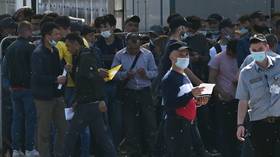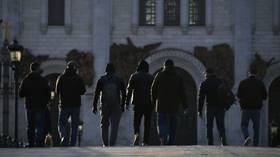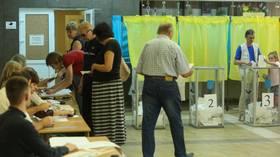Russia to film migrant deportations

Russia’s Federal Bailiff Service (FSSP) is expected to get new tools to record the work of its agents, a preliminary document published on the official portal of the country’s legislature has indicated.
The enforcement arm of the country’s Ministry of Justice is set to introduce mandatory video recording in multiple situations, ranging from bringing court dodgers before judges and guarding judiciary facilities to deporting foreigners who have forfeited their right to stay in the country.
In the latter case, mandatory video recording will be carried out both while those subject to deportation are brought to a holding center pending expulsion, as well as while such individuals are transferred to border checkpoints.
The digital recordings are expected to be stored by the agency for at least six months. In more complicated cases, should the bailiffs’ activity prompt a legal dispute or become the subject of citizens’ complaints, the recordings could be stored indefinitely, the document indicates.
The process will use fixed surveillance cameras, IP-cameras, wearable recorders and other devices.
All cameras are set to be placed in the open and appropriately identified, therefore no secret recording will be conducted by the agency.
Earlier this year, Russia’s legislators embarked on tightening the country’s immigration laws. According to State Duma Chairman Vyacheslav Volodin, the legislature has been considering over two dozen bills aimed at regulating migration, the legal status of foreign citizens in the country, and other issues.
Currently, Russia’s Interior Ministry is in the process of creating a comprehensive database of illegal migrants, First Deputy Minister Alexander Gorovoy revealed in an interview with the newspaper Kommersant last week. Migrants who are placed in the registry will not be able to use banking services, obtain a driver license or register property, and will lose other privileges.














